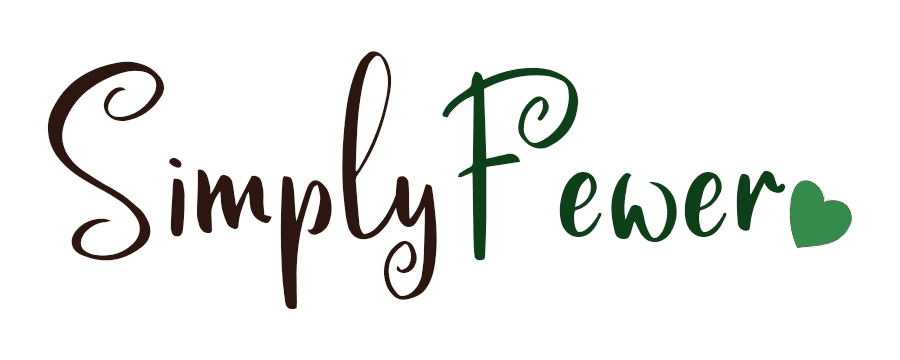Have you ever rolled out of bed feeling like you didn’t sleep at all? Your eyes sting, your body drags, and no amount of coffee seems to fix it. We’ve all been there. But what if the problem isn’t how long you sleep — it’s how you start your day? Creating a mindful morning routine can make all the difference, and it’s one of the simplest ways to support your overall health & wellness.
In this article, we’ll explore how a consistent morning routine for energy can dramatically improve your overall health & wellness. We’ll unpack daily habits, expert advice, and science-backed strategies that help you fuel your body, focus your mind, and begin each day with purpose. Think of this as your guide to waking up not just earlier — but better.
Table of Contents
Why Your Morning Routine Sets the Tone for the Day
How you start your morning is often how you carry your entire day. Think of your morning routine as the launchpad of a spaceship. If the launch is chaotic or delayed, the mission suffers. But if it’s smooth, precise, and intentional, your whole journey feels lighter.
Our brains thrive on routine. A consistent structure helps reduce decision fatigue — those tiny, tiring mental choices that pile up by noon. By automating the early part of your day, you’re saving energy for the tasks that matter.
Research from the American Psychological Association confirms that routines reduce stress and increase productivity. Not surprisingly, high performers — from athletes to CEOs — often cite their morning rituals as key to their success.
But you don’t need to run a company or train for a marathon to benefit. A simple, mindful morning routine can work wonders for busy moms, students, and anyone juggling life’s demands.
Hydration: The First Step Toward Natural Energy
Before you reach for coffee, reach for water. After 7–9 hours of sleep, your body is naturally dehydrated — and even mild dehydration can cause fatigue, brain fog, and headaches.
Drinking 16–20 ounces of water within the first 30 minutes of waking reactivates your metabolism and flushes out toxins. Add a slice of lemon for a refreshing boost of vitamin C and alkalizing properties.
Here’s a quick hydration tip: Leave a full glass of water on your nightstand the night before. That way, it’s the first thing you see and sip when you wake up.
According to Harvard Health, even being just 1.5% dehydrated can impair cognitive performance. If you’re trying to feel more awake and focused, start with the basics. Water is your natural energizer.
Movement: Wake Your Body, Activate Your Brain
You don’t need an intense workout to feel the benefits. Even 5–10 minutes of stretching, yoga, or walking can make a difference. Movement increases blood flow, releases endorphins (those happy chemicals), and signals to your body that it’s time to be alert.
One powerful way to move in the morning? Try sun salutations or a brief mobility routine. Not only does it loosen your joints, but it connects breath with movement, calming your nervous system while awakening your body.
Imagine your body like a car on a cold morning. You wouldn’t hit the freeway without warming it up first, right? The same goes for your body and brain.
A 2022 study in Frontiers in Psychology found that morning exercise enhances focus, mood, and memory throughout the day. And the good news? It doesn’t take much. Just move — and your energy will follow.
Mindfulness Practices That Clear the Fog
If your mornings feel rushed or noisy (even just inside your head), incorporating mindfulness can create a noticeable shift. Meditation, deep breathing, or simple reflection can quiet the mental chaos and bring you into the present.
Try this: As you sit with your water or coffee, close your eyes for one minute and take slow, deep breaths. Inhale for 4 seconds, hold for 4, exhale for 6. Repeat. This is called box breathing, and it’s used by Navy SEALs to stay calm under pressure.
Another tool? Journaling. A quick brain dump or gratitude list sets a positive tone and helps you focus on what truly matters.
Think of mindfulness as opening a window in a stuffy room. Fresh air flows in, and suddenly, you can breathe again.
The Power of a Nourishing Breakfast
Skipping breakfast is like trying to run a car with no gas. A nourishing morning meal fuels your body, stabilizes your blood sugar, and sets the stage for balanced energy.
Aim for a mix of protein, fiber, and healthy fats. Here are some quick examples:

- Greek yogurt with berries and chia seeds
- Scrambled eggs with spinach on whole grain toast
- A smoothie with protein powder, almond butter, banana, and oats
Avoid sugary cereals or empty carbs — they spike your energy, then crash it just as fast. The goal is sustainable energy that carries you through the morning.
According to the Mayo Clinic, people who eat breakfast regularly have better memory, mood, and concentration — and are less likely to overeat later in the day.
Sunlight and Nature: Your Natural Energy Source
There’s a reason your body wakes up with the sun — it’s wired for it. Exposure to natural light in the morning boosts your body’s production of serotonin (the “feel-good” hormone) and regulates your circadian rhythm.
In simple terms? Sunlight helps you wake up and feel good.
Try stepping outside for a few minutes within 30 minutes of waking. Breathe deeply. Feel the light on your face. Let nature reset your internal clock.
Even on cloudy days, outdoor light is more powerful than indoor lighting. And if you can’t get outside right away, open your blinds fully or use a light therapy lamp to mimic the benefits.
This is especially helpful during winter or for those who work early shifts or in dim environments. Light = life. Don’t underestimate it.
Avoiding Morning Energy Killers
Even a great routine can be sabotaged by sneaky energy drains. Here are a few common culprits to watch for:
- Checking your phone immediately: This floods your brain with information and stress before you’ve centered yourself.
- Too much caffeine too early: It might help you wake up, but can lead to jitters and a mid-morning crash. Try waiting an hour before your first cup.
- Hitting snooze repeatedly: Each time you snooze, you confuse your body’s internal clock. It’s better to set one alarm and stick to it.
One way to stay consistent? Lay out your clothes and prep your breakfast the night before. This reduces mental clutter and helps you move smoothly through your routine.
Remember: the goal isn’t perfection — it’s progress. A few simple tweaks can rescue your mornings and your energy.
Creating a Consistent Sleep Schedule
Morning energy actually starts the night before. Without quality sleep, no routine can fully restore you. It’s like trying to fill a leaky bucket.
Consistency is key. Go to bed and wake up around the same time every day — yes, even on weekends. This anchors your body’s internal clock and makes waking up less painful.
Here are some sleep-friendly habits:
- Avoid screens 1 hour before bed
- Keep your bedroom cool and dark
- Use a white noise machine or fan
- Try a wind-down ritual: warm shower, stretching, or calming tea
Think of sleep like charging your phone. You wouldn’t start your day with 20% battery. Why should your body?
According to the National Sleep Foundation, 7–9 hours of sleep per night is ideal for most adults. Skimping on sleep reduces memory, mood, and — you guessed it — morning energy.
Conclusion: Start Strong, Stay Strong
A powerful morning routine for energy isn’t about doing more. It’s about doing the right things — consistently, intentionally, and with care.
When you hydrate, move your body, nourish your mind, and fuel your cells, you’re not just surviving your morning — you’re owning it.
Think of your morning as the first chapter of your daily story. Write it well, and the rest of the day tends to follow.
Start small. Stay steady. And watch your energy grow.
FAQs
What time should I wake up for the best energy?
There’s no perfect time, but consistency is key. Try waking up around the same time every day — even on weekends — to regulate your body clock.
Do I need to work out every morning to boost energy?
Not at all. Even 5–10 minutes of light stretching or a brisk walk can help increase blood flow and alertness.
Can coffee be part of a healthy morning routine?
Yes — in moderation. Ideally, wait 60–90 minutes after waking to allow your natural cortisol to rise first. This helps avoid reliance on caffeine.
What’s a good breakfast if I’m short on time?
Try a smoothie with protein powder, banana, nut butter, and oats. Or prep overnight oats the night before for a grab-and-go meal.
Is it bad to check my phone first thing in the morning?
It’s not ideal. Checking your phone floods your mind with distractions before you’ve grounded yourself. Try starting your day screen-free for at least 20 minutes.

